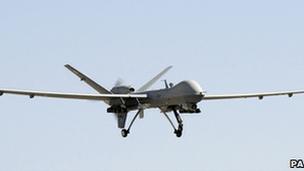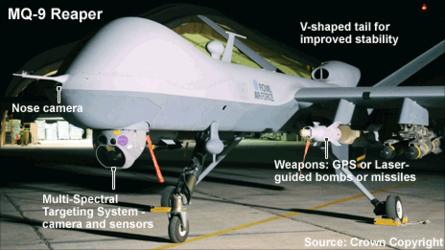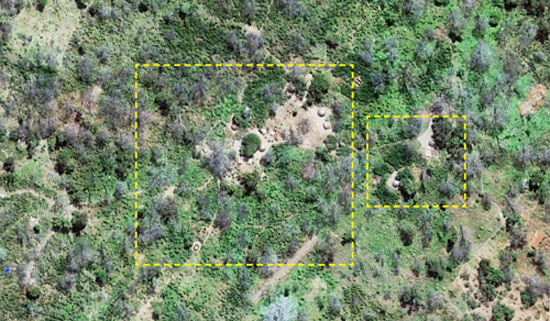2012 Human Rights Reports: Rwanda
This is the basic text view. SWITCH NOW to the new, more interactive format.
News and Information about Africa issues and problems, Human Rights Abuses, Unpunished War Crimes and Crimes Against Humanity in Africa, UK's Policy in Africa and UK-Africa Politics and Foreign Relations, e.g. UK's Proxy Wars in Africa: The Case of Rwanda and D.R. Congo.

The UN has ignored its own reports, NGOs and media reports about the massacres of hundreds of thousands of Hutu in DRC Congo (estimated to be more than 400,000) by Kagame when he attacked Hutu refugee camps in Eastern DRC in 1996. This barbaric killings and human rights violations were perpetrated by Kagame’s RPF with the approval of UK and USA and with sympathetic understanding and knowledge of UNHCR and international NGOs which were operating in the refugees camps. According to the UN, NGO and media reports between 1993 and 2003 women and girls were raped. Men slaughtered. Refugees killed with machetes and sticks. The attacks of refugees also prevented humanitarian organisations to help many other refugees and were forced to die from cholera and other diseases. Other refugees who tried to return to Rwanda where killed on their way by RFI and did not reach their homes. No media, no UNHCR, no NGO were there to witness these massacres. When Kagame plans to kill, he makes sure no NGO and no media are prevent. Kagame always kills at night.
This is the basic text view. SWITCH NOW to the new, more interactive format.
27 April 2013 Last updated at 17:55

Armed drone aircraft have been operated remotely from Britain for the first time, the Ministry of Defence has said.
It said Reaper drones had flown missions controlled from RAF Waddington, Lincolnshire, where campaign groups have held a protest rally against the practice.
The MoD said it respected people's rights to protest peacefully.
The drones are mainly used for surveillance, but could use weapons if commanded to by their pilots in the UK.
Campaigners say the switching of control of flights to the UK marks a "critical expansion in the nation's drones programme".
They are calling on the government to abandon the use of drones, claiming they make it easier for politicians to launch military interventions, and have increased civilian casualties.
The MoD has defended their use in Afghanistan, saying it has saved the lives of countless military personnel and civilians.
The 10 Reaper aircraft are all based in Afghanistan to support UK and coalition forces and can carry 500lb bombs and Hellfire missiles for strikes on insurgents.
They are piloted remotely, but launched and landed with human help at Kandahar airbase.
BBC defence correspondent Caroline Wyatt says the "overwhelming majority" of missions the British drones are used for involve surveillance.
She says the MoD told her British drones are not being used for targeted assassinations, unlike the Predator drones used by the US in places such as Pakistan.
Estimates suggest CIA drone attacks in Pakistan killed up to 3,533 people between 2004 and 2013.
About 890 of them were civilians and the vast majority of strikes were carried out under President Barack Obama's administration, according toresearch by the Bureau of Investigative Journalism.
Earlier this year the UN launched an inquiry into the impact on civilians of drone strikes and other targeted killings, saying a proper legal framework was required to provide accountability.
The MoD says that when weapons are used, the same rules of engagement are followed that govern the use of weapons on manned aircraft.
Previously, RAF personnel would control the drones from Creech Air Force Base, in Nevada, US.
In October last year, the RAF created 13 Squadron based at RAF Waddington south of Lincoln, where about 100 personnel include pilots, systems operators and engineers that control missions over Afghanistan.
In a statement issued on Thursday, the RAF said it had commenced supporting the International Security Assistance Force and Afghan ground troops with "armed intelligence and surveillance missions" remotely piloted from RAF Waddington.
Air Vice Marshall Sir John Walker, a former chief of defence intelligence, said "having a capability like the drones on the order of battle can only be a good thing" because they could help troops on the ground who are in trouble, if necessary.
Speaking on Radio 4's Today programme, he likened drones to Polaris submarines which, he said, provided an effective nuclear deterrent without being used.
He said terrorists in parts of Afghanistan operate in "a condition of sanctuary", prompting him to ask: "How are you going to get them without something like a drone approach?"
Meanwhile, Kat Craig, legal director of human rights charity Reprieve, said the use of drones was a blight on the communities the drones monitor.
"The nature of drones means they hover above communities 24 hours a day, seven days a week," she said.
She went on: "They present an aerial occupation, almost a form of collective punishment, that causes huge concern and distress to people living in those communities.
"In addition to the terrorising of populations that we see living under drones, there is real concern about the accuracy of the targeting."
Several anti-war groups including CND, War on Want, the Drone Campaign Network, and the Stop the War coalition held a march and rally outside RAF Waddington on Saturday.
About 200 people are thought to have attended the demonstration, according to BBC reporters at the scene.

Chris Nineham, vice-chairman of the Stop the War Coalition, said: "I think people feel that there is something sinister and disturbing about the idea that someone can attack a foreign country thousands of miles away with, simply, the push of a button and this technology that is being introduced is giving carte blanche to governments to fight wars behind the backs of people with no public scrutiny or accountability.
"That's the fundamental problem."
The route of the march, from South Common along the A15 to the peace camp site opposite RAF Waddington, involved road closures in phases to limit inconvenience to motorists.
An MoD spokesman said: "We fully respect people's right to protest peacefully and within the law and would do nothing to prevent members of the public exercising their right to peaceful protest.
"Nevertheless, we have a duty to protect public property, and to ensure that we meet our operational needs.
"The MoD has a duty to maintain security at all defence installations and uses all lawful means to do so, including the right to seek injunctions against any person who persists in trespassing on MoD property."

-“The enemies of Freedom do not argue ; they shout and they shoot.”
The principal key root causes that lead to the Rwandan genocide of 1994 that affected all Rwandan ethnic groups were:
1)The majority Hutu community’s fear of the return of the discriminatory monarchy system that was practiced by the minority Tutsi community against the enslaved majority Hutu community for about 500 years
2)The Hutu community’s fear of Kagame’s guerrilla that committed massacres in the North of the country and other parts of the countries including assassinations of Rwandan politicians.
3) The Rwandan people felt abandoned by the international community ( who was believed to support Kagame’s guerrilla) and then decided to defend themselves with whatever means they had against the advance of Kagame’ guerrilla supported by Ugandan, Tanzanian and Ethiopian armies and other Western powers.
-“The enemies of Freedom do not argue ; they shout and they shoot.”
-“The hate of men will pass, and dictators die, and the power they took from the people will return to the people. And so long as men die, liberty will never perish.”
-“The price good men pay for indifference to public affairs is to be ruled by evil men.”
-“I have loved justice and hated iniquity: therefore I die in exile.”
The Rwanda war of 1990-1994 had multiple dimensions. Among Kagame’s rebels who were fighting against the Rwandan government, there were foreigners, mainly Ugandan fighters who were hired to kill and rape innocent Rwandan people in Rwanda and refugees in DRC.







This blog reports the crimes that remain unpunished and the impunity that has generated a continuous cycle of massacres in many parts of Africa. In many cases, the perpetrators of the crimes seem to have acted in the knowledge that they would not be held to account for their actions.
The need to fight this impunity has become even clearer with the massacres and genocide in many parts of Africa and beyond.
The blog also addresses issues such as Rwanda War Crimes, Rwandan Refugee massacres in Dr Congo, genocide, African leaders’ war crimes and crimes against humanity, Africa war criminals, Africa crimes against humanity, Africa Justice.